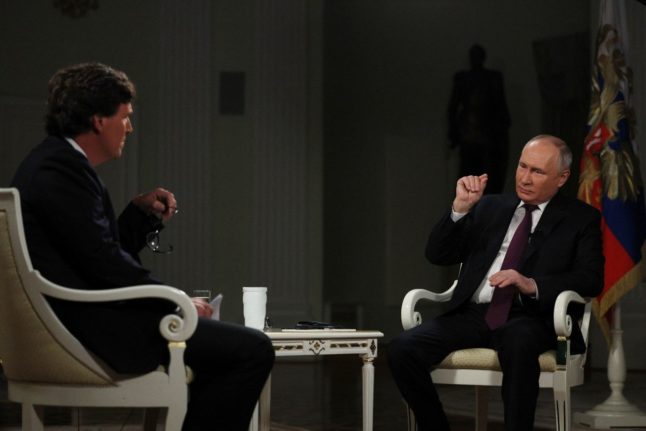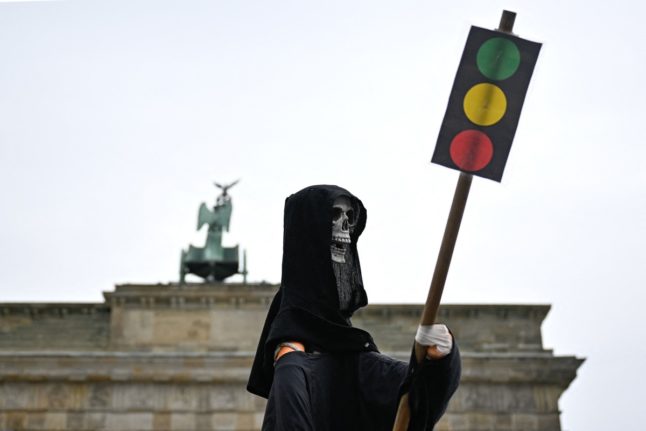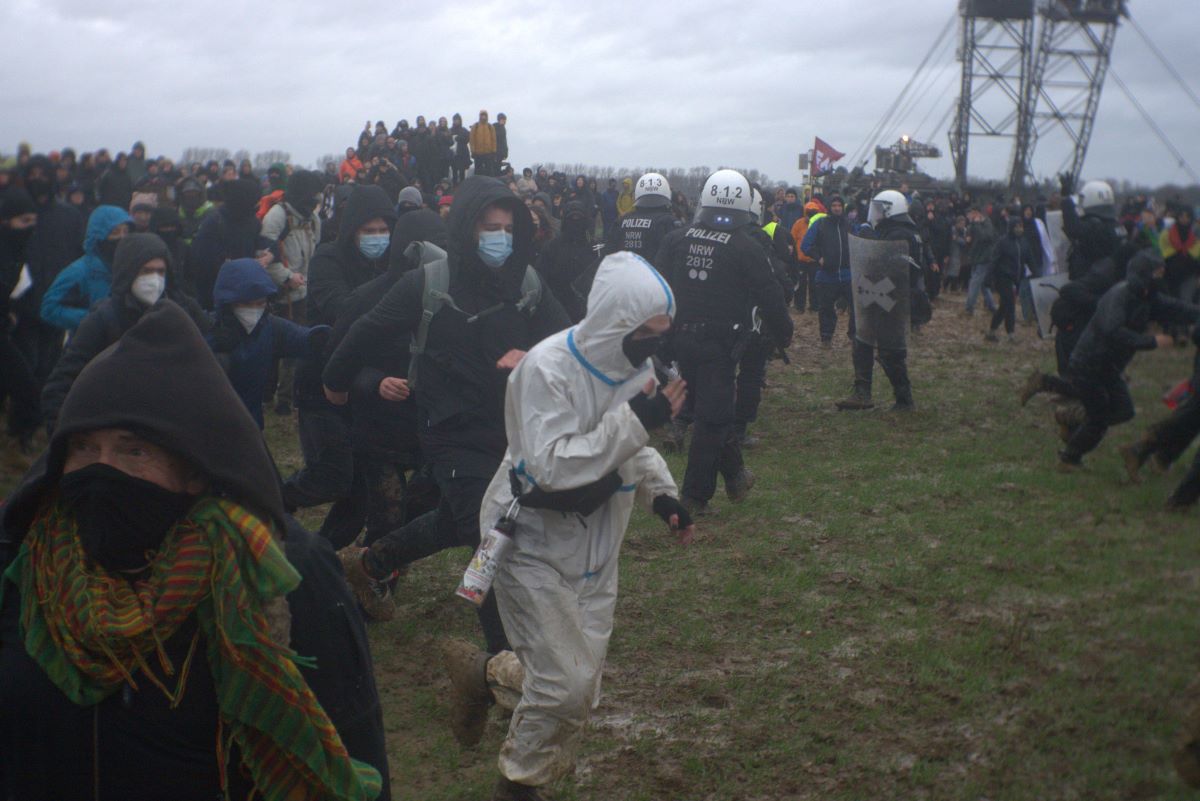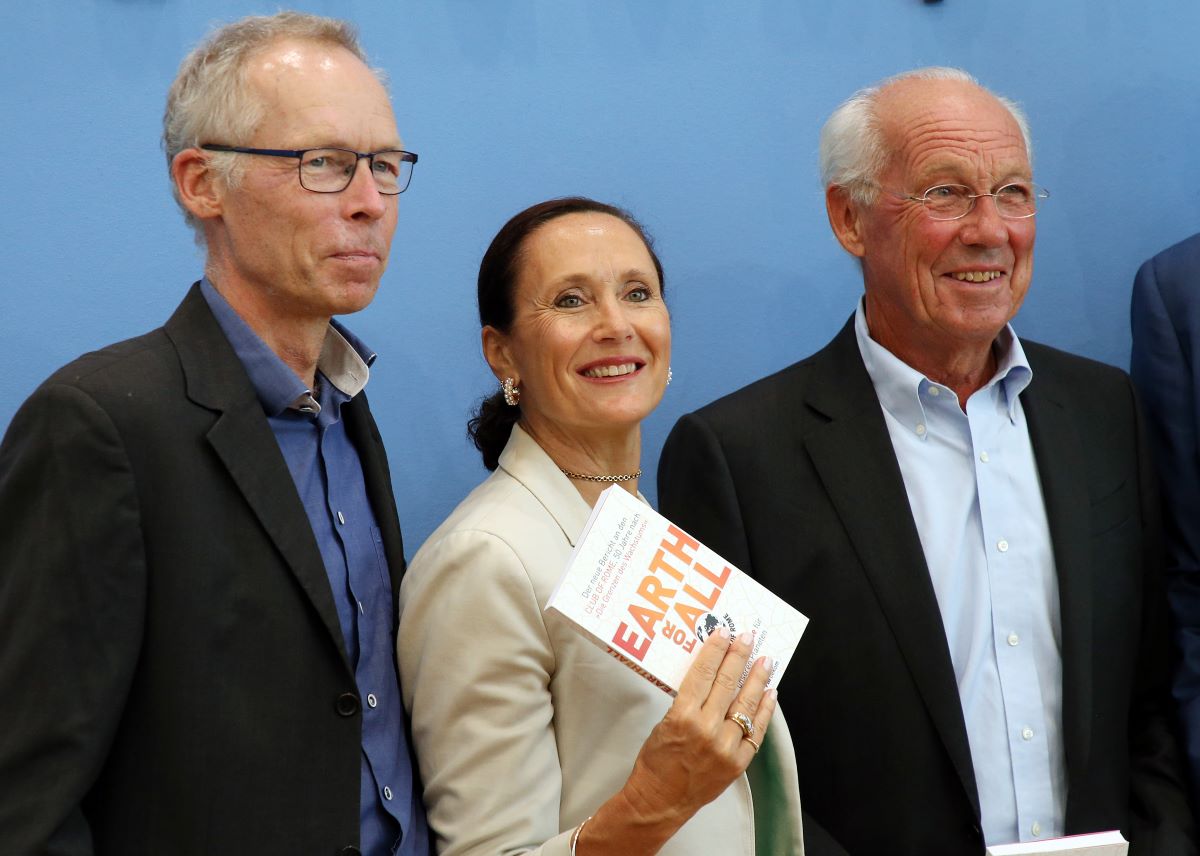In an interview with US journalist Tucker Carlson published Thursday, Putin brought up the case of Vadim Krasikov — without mentioning him by name — in the context of ongoing negotiations over a deal to free Wall Street Journal reporter Evan Gershkovich.
Krasikov is serving a life sentence in Germany for the 2019 killing of separatist commander Zelimkhan Khangoshvili in a Berlin park, which German authorities say was ordered by Russian intelligence services.
Gershkovich, meanwhile, is imprisoned in Moscow since his March 2023 arrest on charges of espionage — accusations rejected by him, his employer and the White House.
Putin said it was likely a deal to exchange Gershkovich could be reached, but called on the United States to give in to Russian demands.
READ ALSO: Russian disinformation in Germany ‘much more confrontational and aggressive’
“There is a person serving a sentence in a US ally. That person, out of patriotic sentiments, eliminated a bandit in a European capital,” Putin said during the interview, referring to Krasikov’s case.
“Whether he did it of his own volition or not, that is a different question,” he added.
Asked outright on Friday whether Krasikov was an FSB agent, Putin’s spokesman Dmitry Peskov said: “I will leave that question without an answer.”
US officials have accused Russia of arresting American citizens in hopes of using them to secure the release of Russian spies abroad.
In 2022, Russia freed American basketball player Brittney Griner for the notorious arms dealer Viktor Bout.
“I do not rule out that the person you refer to, Mr. Gershkovich, could return to his motherland,” Putin said in the interview.
“It does not make any sense to keep him in prison in Russia. We want the United States’s special services to think about how they can contribute to achieving the goals our special services our pursuing,” he added.
READ ALSO: Two Germans charged with treason in Russia spying case
“I believe an agreement can be reached,” Putin said.
Gershkovich was arrested in March 2023 while on a reporting trip in the Urals city of Yekaterinburg.
Another American journalist, joint US-Russian citizen Alsu Kurmasheva, is also being held in a Russian prison, charged with breaching Russia’s censorship rules and failing to register as a “foreign agent”.
Her employer, Radio Free Europe/Radio Liberty, also denies the accusations.





 Please whitelist us to continue reading.
Please whitelist us to continue reading.
Member comments